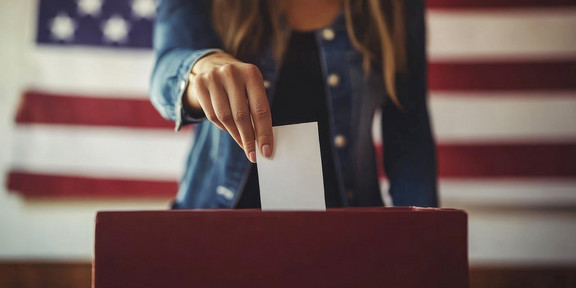Interview: Three questions to Prof Matthias Kortmann on the outcome of the US elections

Donald Trump will in all likelihood become the 47th president of the United States. What does this imply for the US and the rest of the world?
In the US, polarization of society will continue. It is not clear which of the suggested measures, such as the deportation of millions of immigrants Trump will actually implement. It can be assumed, that the pressure on democratic institutions in the US will grow, as Trump will likely attempt to weaken the constitutional order of checks and balances, which aims to balance out diverging interests. In addition, he will reduce climate protection efforts. For Europe the there is a growing necessity to strengthen itself in regard to security, also in the military sense; not least because the USA will reduce its military support for Ukraine and reestablish its connections with Russia. It can be expected that trade conflicts with China will intensify.
Why was decision between Donald Trump and Kamala Harris ultimately less tight than projected?
This seemingly decisive victory is certainly due to the electoral system: The popular vote, so the entirety of votes that were cast during the election, show that the election is indeed as tight as it had been projected. What is important is that Trump was able to claim victory in all swing states. Most states in the US follow the “winner-takes-all” system. This means that even with close results in a state the winner can claim all electors who then make up the Electoral College which ultimately elects the president. This is how Trump could gather a significant majority in the Electoral College with a relatively small majority in the popular vote.
What role does religion or the religious right play in the USA and what influence does it have on voting behavior?
For a lot of Trump’s voters religion plays an important role. He is able to reach high approval ratings with religious voters. Many Hispanic people, who are traditionally seen as Democratic voters, are catholic and conservative. They can relate more to Trump’s policies such as abortion and less to Harris’ positions who strongly relied on a pro-choice message. In the end the economy as well as immigration were key topics, that voters deemed to be most important and for which Trump was able to achieve higher competency ratings.
Translation: Ian Singendonk. The original version of the article can be found here.
Event Notice: Prof Matthias Kortmann and research assitants of the Institute for Philosophy and Political Science are going to host a talk titled “US-Wahlen 2024: Politikwissenschaftlich eingeordnet & diskutiert“. The talk will take place from 11:30 AM to 1:00 PM in room 2.242 (EF50).

